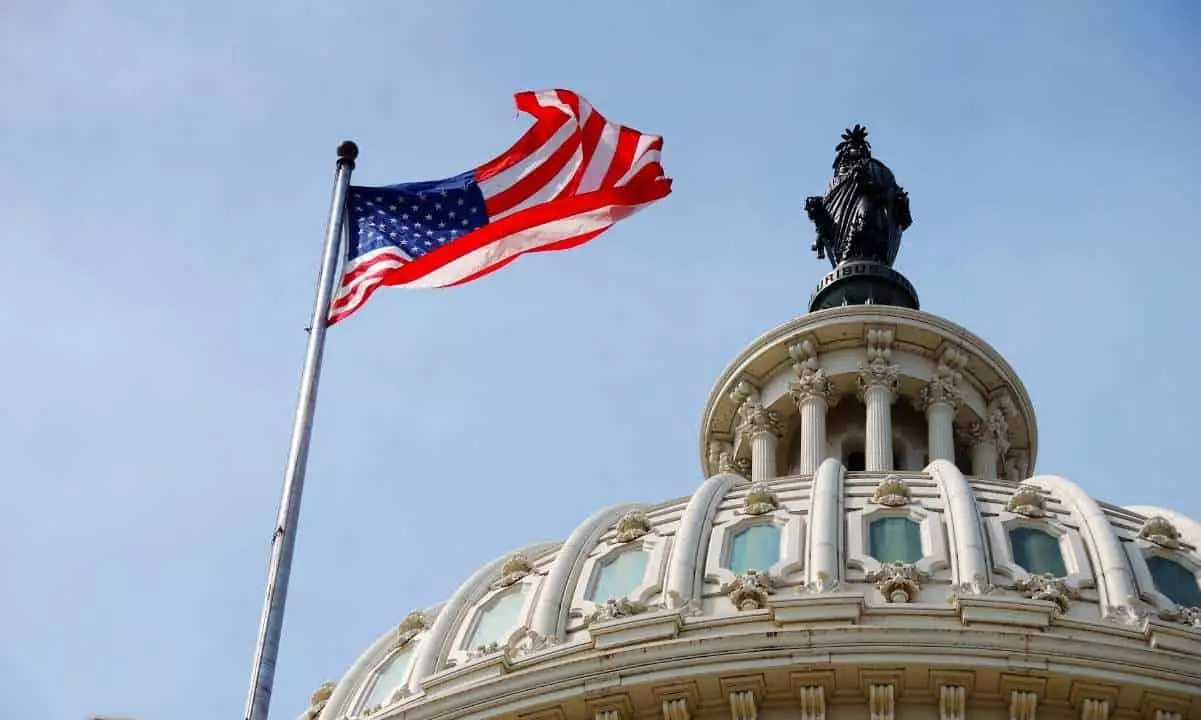In an ambitious move signaling the United States Senate’s commitment to the burgeoning cryptocurrency landscape, the Senate Banking Committee is poised to establish a subcommittee dedicated specifically to digital assets. This initiative, led by Chairman Tim Scott, represents a pivotal shift in regulatory policy aimed at keeping pace with the rapid evolution of the crypto industry. As one of his first significant actions, Scott’s push to create this subcommittee has garnered attention, particularly with the anticipated leadership of Senator Cynthia Lummis, a proponent of cryptocurrency regulation.
The Senate Banking Committee, operating as a vital regulatory body, oversees critical financial institutions and agencies, including the Securities and Exchange Commission (SEC) and the Federal Deposit Insurance Corporation (FDIC). By establishing a subcommittee focused on cryptocurrency, the Senate aims to tackle the complexities and unique challenges posed by digital assets. This step is particularly significant as it follows a series of legislative efforts within the House of Representatives, highlighting a concerted approach towards enhancing regulatory frameworks for cryptocurrency.
The introduction of this subcommittee mirrors a similar initiative by House Financial Services Committee Chairman Patrick McHenry, who earlier launched a dedicated crypto-focused subcommittee. Both legislative bodies are aligning in their objectives to create a clearer regulatory landscape, recognizing the need to address consumer protections and align these with technological advancements.
Legislative Intent and Implications
The Senate’s initiative comes in the wake of discussions surrounding the Financial Innovation and Technology for the 21st Century Act (FIT21), passed by the House in 2024. This landmark legislation aims to delineate the roles and responsibilities of various regulatory agencies overseeing crypto, enhancing transparency and security within the industry. Among its stringent consumer protections is a prohibition against the commingling of customer funds—a measure designed to avert catastrophic financial failures akin to the FTX collapse.
Co-author of FIT21, Congressman French Hill, has emphasized the need for such protections to maintain consumer confidence and foster a more resilient financial ecosystem. As the Senate moves to establish its subcommittee, it underscores an intent to build on the regulatory groundwork laid out in the House, signifying a bipartite approach to legislation that could redefine how cryptocurrencies are integrated into traditional financial systems.
The Composition of the New Subcommittee
The selection of Republican members for the new subcommittee reflects a strong commitment to advancing cryptocurrency interests. Freshman senators such as Bernie Moreno from Ohio and Dave McCormick from Pennsylvania join seasoned legislators like Thom Tillis and Bill Hagerty. This lineup suggests a robust advocacy for crypto, indicating that the subcommittee could be a powerful player in shaping future policies.
Conversely, the participation of Democratic senators remains uncertain, particularly with prominent critics of cryptocurrency, such as Elizabeth Warren, occupying influential positions on the Senate Banking Committee. This potential ideological divide raises questions about the viability of bipartisan support for future crypto legislation. Navigating such political terrain will be crucial for the subcommittee’s overall effectiveness.
The timing of this initiative is noteworthy, as Republicans recently regained control of the Senate, enabling them to influence the legislative agenda more significantly. Additionally, with Donald Trump’s upcoming inauguration as President, the GOP appears poised to unify its approach toward advancing crypto-related legislation. This political landscape hints at a future where the United States could strengthen its position as a global leader in digital assets.
The Senates’ proactive approach may inspire similar initiatives globally, encouraging other nations to explore their regulatory frameworks in light of the rapidly evolving cryptocurrency market. As the world looks toward the U.S. for guidance, the actions taken by the Senate Banking Committee will likely establish precedent-setting measures in the realm of digital asset regulation.
The establishment of a subcommittee focused on cryptocurrency by the U.S. Senate Banking Committee represents a significant milestone in legislative efforts around digital assets. As the sector matures and continues to intertwine with traditional finance, such moves toward regulation underscore the necessity for clear, effective, and consumer-friendly guidelines. Ultimately, the success of this initiative will depend on collaborative efforts that bridge partisan divides and pave the way for comprehensive regulatory frameworks capable of fostering innovation while safeguarding consumers.


Leave a Reply